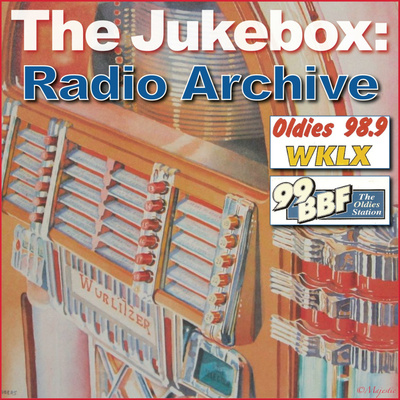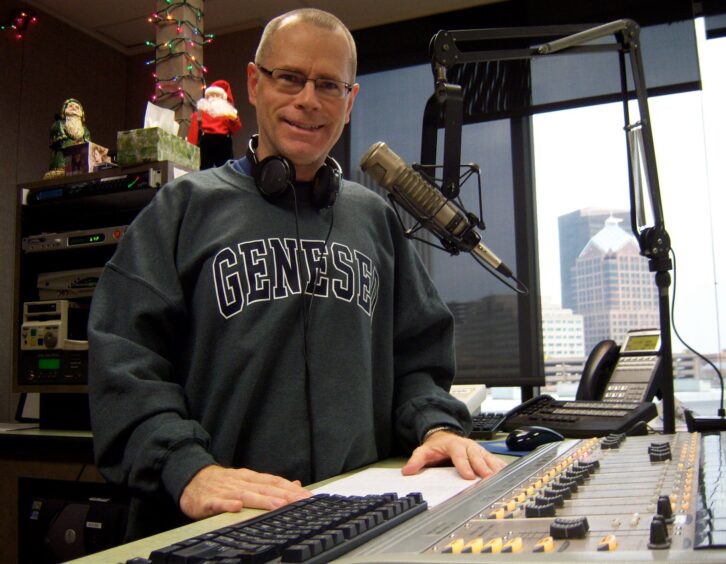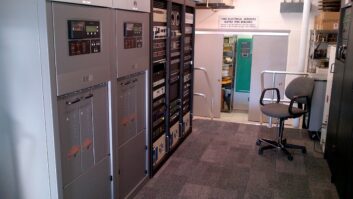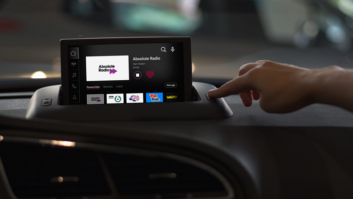“The Jukebox,” an all-request radio show from the ’90s, is making a comeback, with one of its former hosts launching a podcast project more than 20 years in the making.
For “The Jukebox: Radio Archive,” Rochester radio junkie Mike Saffran is using old airchecks to give segments from the show a second shot at life. To do this, he has to pull all the source material from cassette tapes, which he has had stored in a footlocker for the last two decades.
To learn more about his podcast, and about his time hosting “The Jukebox,” Radio World emailed with Saffran, whose answers appear in the story below.
Radio World: You launched a podcast called “The Jukebox: Radio Archive.” What is it and who would enjoy listening?
Mike Saffran: “The Jukebox: Radio Archive” is my new podcast presenting “scoped” classic radio airchecks from my former all-request, call-in show that I hosted on WKLX(FM) — later, after a call-letter change, WBBF(FM) — in Rochester, New York. The station is now Audacy’s WBZA(FM), but I have no present affiliation with it.
As for its target audience: Longtime western New York (especially Rochester) area residents and former listeners of the show (whether or not they called in requests) are likely to be most interested in the “trip down Memory Lane.” But, more generally, I think some radio people might also find it fun. After all, who among us “radio geeks” doesn’t enjoy occasionally listening to old radio airchecks? Personally, I love hearing random airchecks from a variety of stations.
RW: Is it the kind of thing that is mostly aimed at Rochester-area listeners?
Saffran: The old show recordings from “The Jukebox” will, undoubtedly, appeal mostly to local Rochester and western New York listeners, wherever they are now. That said, I had listeners and callers from as far away as Buffalo and Ontario, Canada (there was nothing to get in the way of the radio signal beaming across Lake Ontario to places such as Belleville, Ontario). Plus, as mentioned, I think the podcast might appeal to “radio people,” more generally, too!
RW: What’s your own radio career path to date?
Saffran: I’m currently GM of college station WGSU(FM) at SUNY Geneseo. Plus, since 2011, I’ve worked weekends at WRMM(FM) in Rochester (where I’ve worked twice, separated by 22 years: 1988–89 and 2011–present) with, as is typical in radio, plenty of other stops along the way.

RW: What made “The Jukebox” distinctive?
Saffran: First and foremost, it was a bonafide live-request show which, at the time, was somewhat unusual on a conglomerate-owned (then Entercom) commercial station in a medium market. By the time I was hosting “The Jukebox” (from 1995–2000), the commercial radio world was well into the era by about 10 years of pre-scheduled, computer-generated playlists. I’d guess that most corporation-owned, commercial stations airing “request shows” back then (and today) were primarily playing pre-scheduled music, with maybe an actual request or two per hour (if they were brave enough to veer that far from their regular, “safe” playlists).
So, for many request shows, it was just “smoke ‘n’ mirrors.” But my request show was the “real deal.” It was an honest-to-goodness local and spontaneous request show featuring actual callers which, I suspect, was unusual in the age of ownership consolidation and corporate media.
Plus, I’d add (at risk of stating the obvious): My being the host also made the show distinctive. I’m a “homegrown” Rochester-born and raised guy, who went locally to grammar and high school and college; who grew up listening to the same local radio stations and going to the same local places as my listeners; and who, on the air, was generally an open book, sharing myself and tidbits about my life on the air.
Oh, and there was the distinctive “coin into the slot” SFX before every song (not just with phone calls), helping to create the unique theater of the mind that radio does so well: A rock ‘n roll party on the radio!
RW: You say that your run as host of “The Jukebox” was a “pinnacle moment.” Why did you connect to it so much?
Saffran: This is an interesting question to ponder further — particularly given that although I grew up with some of the music played in a traditional ’60s-based oldies music format, truth be told, back then, I was younger than station’s target demo.
As host of “The Jukebox,” I probably would’ve been too embarrassed to admit it back then to anyone — especially oldies listeners — but I wasn’t really all that much of a Beatles fan before I started working, in late ’93, for WKLX. I was aware of them and their music, of course, but I was only around six years old when they broke up. But, after being named host of “The Jukebox” in early 1995, I considered it my duty to watch the multipart documentary “The Beatles Anthology,” which aired over a few nights that fall on network TV. I thoroughly enjoyed it, and I came away from the experience with newfound respect and admiration for The Beatles (and, especially, the genius of Lennon and McCartney).

Beyond the music, I just loved taking listener calls, talking to listeners, asking them about how they were spending their Saturday nights and making them feel good by playing their requests on the radio. On a more “under the hood” or “Inside Baseball” technical note: I also was always very good at effectively editing phone calls on the fly in preparing them for air. This was true both for when we recorded phone calls onto an Otari reel-to-reel and, later, after the arrival of VoxPro (a true godsend for a request-show host!).
Hosting the show was, for me, simply such an honor, a five-hour adrenaline rush and just a blast! Back then, there truly was no place else I would’ve rather been than in the studio on a Saturday night.
[Sign Up for Radio World’s SmartBrief Newsletter]
RW: Is it true that the source material is all cassette tapes? What audio process are you using to turn it into a podcast series?
Saffran: That’s correct. All the old airchecks are on their original cassette tapes that were stored in a footlocker. Fortunately, and surprisingly, many of them have held up remarkably well over the course of around 25 years, Although, in a few instances, I’ve learned the value of the adage, “You get what you pay for.” Because the more expensive, higher-quality cassette tapes of 25 years ago probably are more likely to endure — I don’t mean simply the tape itself, but parts, such as pressure pads, that might have a tendency to fall off cheaper cassettes.
As for the process, I’ve been a Mac guy ever since buying my first computer in the early ’90s. So, I’m dubbing, in real time cassette audio from my Technics M231X stereo cassette deck (fortunately I still have a working cassette deck!), via stereo RCA out cable to Griffin iMic (1/8″ in, USB out), to my MacBook Pro, where I’m using GarageBand for editing.
Beyond the old airchecks, I created episode opens by year and a standard close and a short “trailer.” For the new audio, I recorded myself by using a Sennheiser MD46 microphone into my Marantz PMD660 solid-state recorder and then transferred the audio files to and edited/mixed it all in GarageBand.
I had previously lightly researched podcast-hosting platforms, and I opted to go with Spotify for Podcasters (which recently changed its name from Anchor). So far, I’ve been happy with the choice.
RW: Anything else we should know?
Saffran: I remember having conversations 10–20 years ago, in the first few years after leaving “The Jukebox” in 2000, about how I still had all my airchecks, and how I wanted to preserve them as local-radio and Rochester history (not just my own history). Although it has taken me a long time to finally get around to doing it, there’s certain gratification in beginning to accomplish it, at long last. Plus, not surprising to me, it has been fun hearing show recordings that even I haven’t heard in more than two decades. Plus, regaining a sense of simply how much fun it was hosting the show.
My main purpose, in again sharing the fun I had, is to convey how truly magical radio can be when done well, with passion and with a certain amount of freedom and autonomy to allow that fun and passion to shine through, ultimately for listeners.
Submit business announcements to [email protected].






